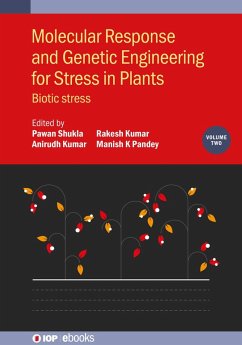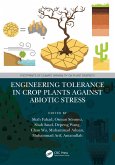Plants are confronted with various environmental stresses, the most prominent of which is biotic stress, which results in yield losses. Biotic stresses include damage caused by microorganisms like bacteria, viruses, fungi, parasites, insects, weeds, and native plants. It occurs to variable degrees in almost all agricultural ecosystems globally. Fungi, bacteria, or viruses may not be present in a given year, although they usually reduce output in the majority of years. Due to changing environmental conditions, plants struggle to attain their full genetic potential for growth and reproduction. This book was written in such a way that it covers all the major classes of biotic challenges to agriculture and food production, as well as the most recent breakthroughs and discoveries in biotic stress. Topics covered include genetic engineering strategies against plant pests, the role of pathogen-inducible endogenous siRNA and WRKY transcription factor in plant resistance, plant defence response against plant viroids, viruses, bacteria, and fungi, and applications of nanotechnology for disease management. It focuses on understanding the physiological, biochemical, and molecular changes in stressed plants and the mechanisms underlying biotic stress tolerance in plants. This book is an ideal text for undergraduate, graduate and research students of Plant Genetic Engineering, Plant Stress Biology, Climate Smart Crops, Plant Biotechnology, Applied Botany, Stress Biology, Biotic and Abiotic Stress.
Dieser Download kann aus rechtlichen Gründen nur mit Rechnungsadresse in A, D ausgeliefert werden.









